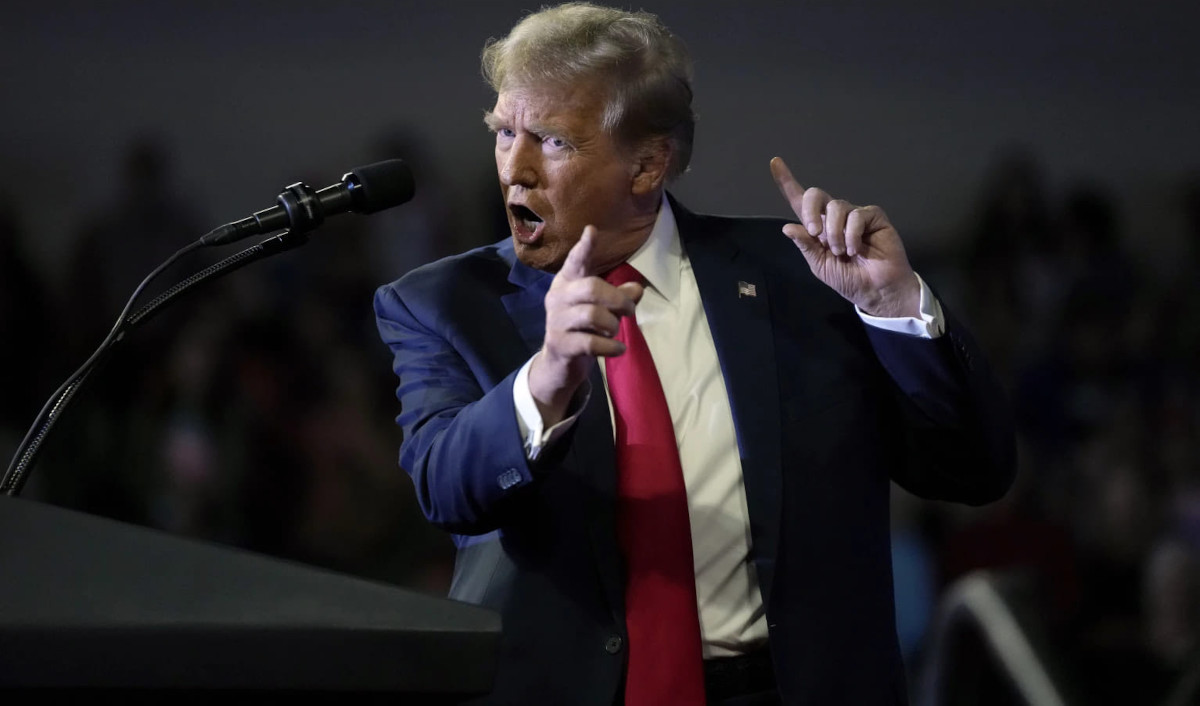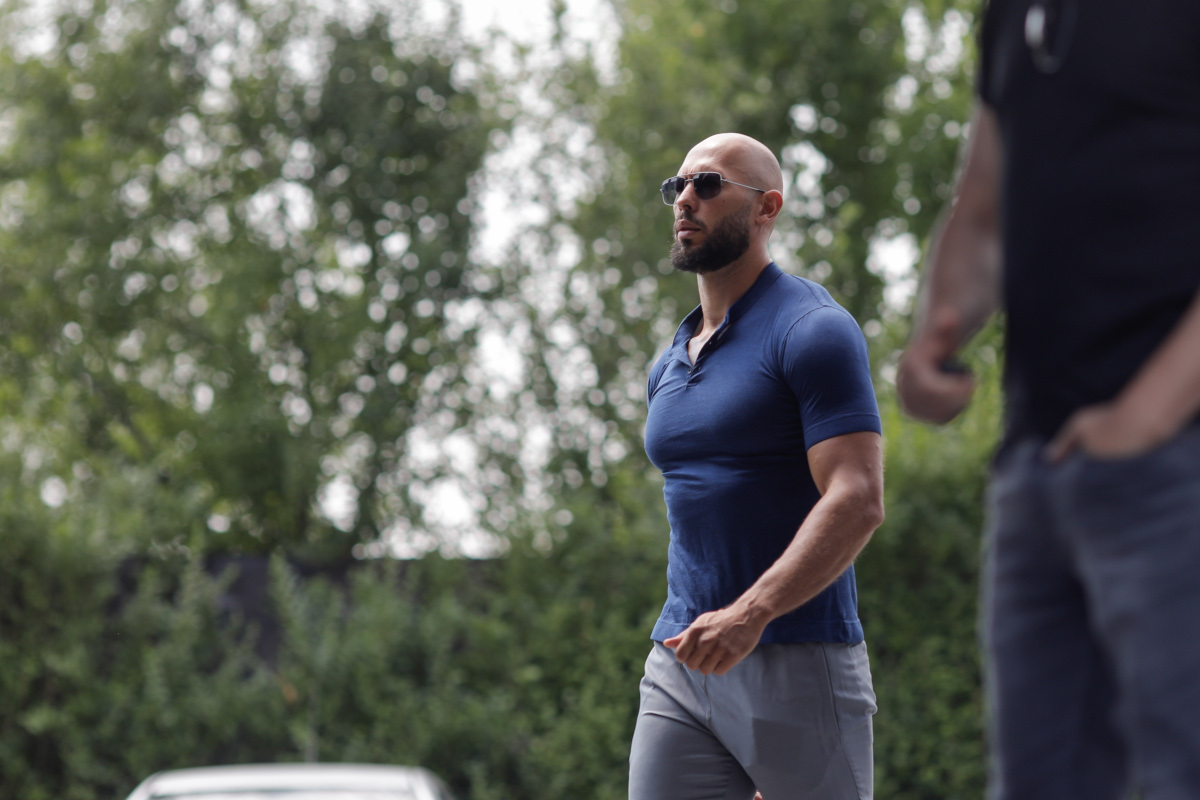“Missed me” – that’s the simple line with which former US President Ronald Reagan drew laughter and applause during an otherwise not very exciting speech. The story behind the event and the comparisons between Trump and Reagan highlight why, despite the traumatic episode he went through on Saturday, Donald Trump still has plenty to be happy about.
Reagan uttered the famous quip in Berlin in 1987 after a balloon burst in the crowd and inadvertently created a sound similar to a gunshot. The audience was obviously delighted by Ronald Reagan’s trademark actor charm, but the moment certainly wouldn’t have remained as famous to this day if the former president hadn’t survived an assassination attempt in 1981.
Shortly after this weekend’s assassination attempt on Trump, comparisons between the current presidential candidate and Ronald Reagan, the last US president to survive such a serious assassination attempt more than 40 years ago, have started to appear in the American media.
Strictly speaking, there are many similarities between the two events: both Trump and Reagan dodged being hit by volleys of bullets by mere inches, but not without injury. Of course, Trump suffered a superficial ear wound compared to Reagan, who was shot in the lung, close to his heart.
But those are just details for medical reports and historians. What really matters is the image created in the public eye by such an event. In Reagan’s case, just two days after the assassination attempt, Washington Post journalist David Broder said, “What happened to Reagan on Monday is the stuff legends are made of.”
It is a controversial statement, but one that he has maintained over the ensuing decades because, in his view, it elevated the former president to the status of a myth and made him politically “untouchable”.
As for the attempt on Donald Trump’s life, the immediate assertions are somewhat less flattering, but recognize the fabulous opportunity he has been given. For example, as Tony Diver writes for The Telegraph, “”This could hand Trump the election”.
It may seem a far too cynical perspective on an event that resulted in the deaths of two people and the wounding of others, but there is much to support it. After all, the image of Trump triumphantly raising his fist, with a perfectly placed American flag in the background and blood on his face, will probably go down in the history books, and indeed has already made the cover of Time Magazine –
It’s like the legend is being written before our very eyes, and if the trajectory of events follows the historical pattern, Trump has much to gain.
Presidential assassination – a complex American problem

The president tends to be a pretty important person in a democratic state, but for the United States of America, a country that has had nothing but presidents throughout its two-and-a-half-century history, the importance of the office is hard to overstate.
American presidents are not just politicians and historical figures. They are, to some extent, fairy-tale figures, legends and symbols who enjoy a level of admiration and respect from their own people that many leaders in history have sought with a pathos that often borders on the insane.
For this reason, the assassination of an American president tends to leave deep and hard-to-heal wounds in the American collective consciousness. Who knows how many libraries it would take to collect together all the books, newspaper articles and operas dealing with the assassination of Abraham Lincoln. At the same time, the Death of John F. Kennedy still occupies a prominent space in the mind of every conspiracy nut in America and beyond.
But what happens when a president survives an assassination attempt? In Reagan’s case, the immediate effect was a surge in the polls. Shortly after the assassination attempt, his approval rating among the people rose from 60% to 68%. During the 1984 election, Reagan achieved a historic feat: he won 49 of the 50 US states in the Electoral College. To call that a landslide victory would be an understatement, and many voices believe that the failed assassination played a significant role in achieving this result.
Not all attempts have such a powerful effect, however, especially if the president is not physically harmed. Some stand out in other ways. For example, only two women in US history have attempted to assassinate a president. Both targeted Gerald Ford within two weeks of each other in 1975. No, the assassinations had nothing to do with the president’s personal life and nothing to do with each other.
The first assassin, Lynette Fromme, was a member of the cult led by serial killer Charles Manson, while the second, Sara Jane Moore, was a left-wing extremist. The attacks occurred two weeks apart by sheer coincidence.
The further back you go into history, the less relevant the line between fact and legend becomes. A famous example is Theodore Roosevelt. A boxer and wrestler, as well as a Medal of Honor decorated veteran of the Spanish-American War of 1898, Roosevelt was, in short, a tough guy with a reputation to match. This was elevated to a whole new level, however, by his famous 1912 speech.

Roosevelt was shot in the chest while preparing to deliver a speech during his re-election campaign. Fortunately, the bullet went first through the copy of the 50-page speech in front of him and through the eyeglass steel case, so he only received a flesh wound. And he still managed to deliver his 90-minute speech.
Andrew Jackson, the seventh US president, has an almost equally dramatic story. In 1835, he survived the first known attempt on the life of an American president. A mentally disturbed man attacked Jackson with two flintlock pistols, which malfunctioned when fired, a common occurrence for firearms at the time.
Although elderly and in need of a cane, Jackson still tried fight back against the attacker, but the president’s bodyguards quickly stopped the altercation.
It’s hard to say what role Saturday’s bombing will play in Donald Trump’s campaign, but one thing is certain: the mere fact that he entered the conversation is an image boon that no advertising budget in the world could buy.
Ne bucurăm că ne citești!
Dacă vrei să ne și susții:











